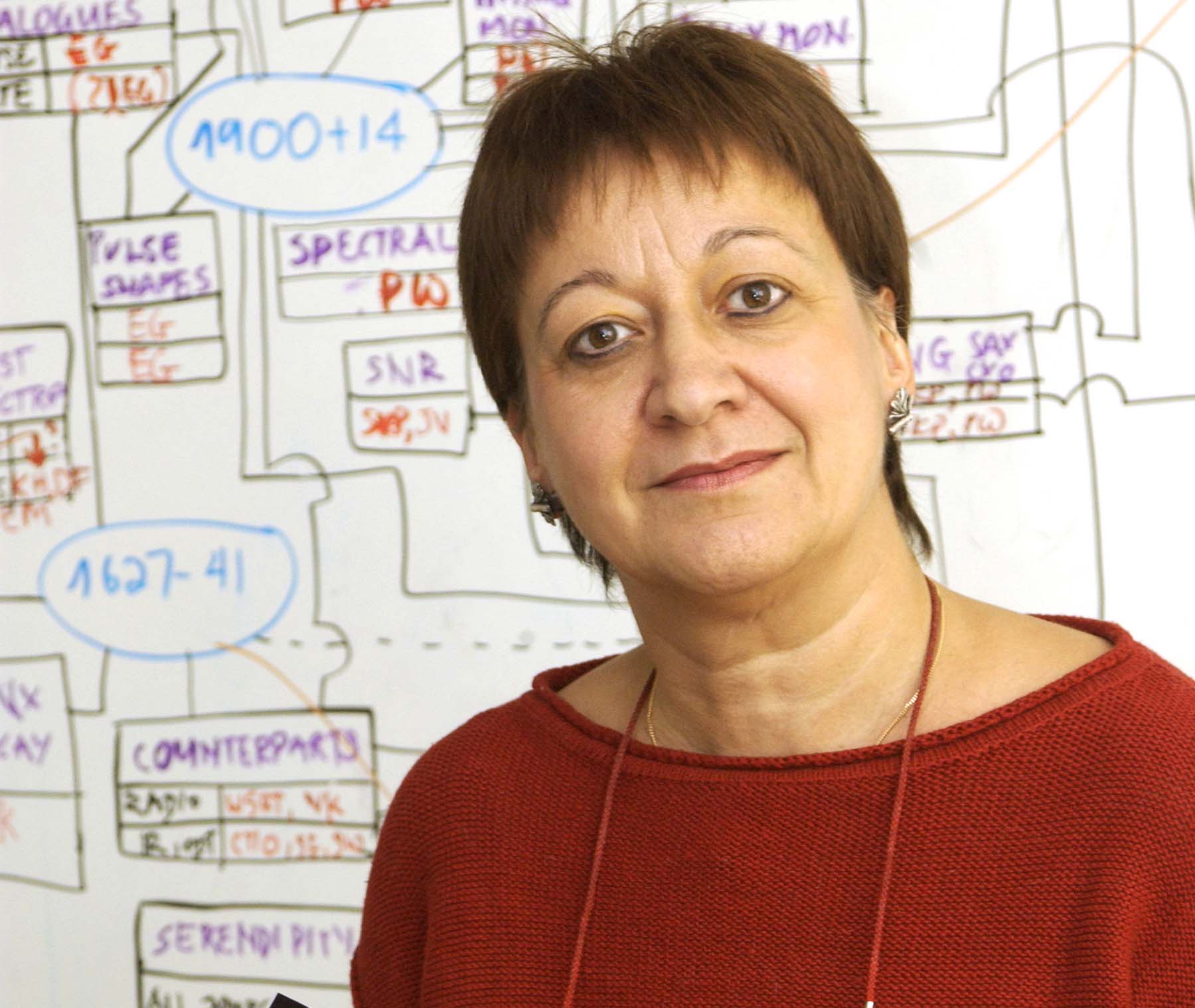Chryssa Kouveliotou Awarded 2021 Shaw Prize in Astronomy

Chryssa Kouveliotou Credit: NASA
AURA congratulates Chryssa Kouveliotou, member of the AURA Board of Directors, and recipient of the 2021 Shaw Prize in Astronomy.
The Shaw Prize in Astronomy 2021 is awarded in equal shares to Victoria M Kaspi, Professor of Physics and Director of McGill Space Institute, McGill University, Canada and Chryssa Kouveliotou, Professor and Chair, Department of Physics at George Washington University, USA for their contributions to our understanding of magnetars, a class of highly magnetized neutron stars that are linked to a wide range of spectacular, transient astrophysical phenomena. Through the development of new and precise observational techniques, they confirmed the existence of neutron stars with ultra-strong magnetic fields and characterized their physical properties. Their work has established magnetars as a new and important class of astrophysical objects.
Neutron stars are the ultra-compact remnants of stellar explosions. Most are rapidly rotating with periods of milli-seconds to seconds, and emit powerful beams of electromagnetic radiation (observed as pulsars). As such they are accurate “cosmic clocks” that enable tests of fundamental physics in the presence of a gravitational field many billion times stronger than that on Earth. As a result, the Nobel Prize in Physics has been awarded twice for work on pulsars (1974 and 1993).
“We are delighted that Chryssa’s seminal contributions towards understanding the nature of the transient High-Energy Universe through breakthrough discoveries and studies of explosive events have been recognized through the Shaw Prize, and we are proud to have her on the AURA Board,” says Debra Elmegreen, Chair of the AURA Board of Directors.
The Shaw Prize is an international award to honor individuals who are currently active in their respective fields and who have recently achieved distinguished and significant advances, who have made outstanding contributions in academic and scientific research or applications, or who in other domains have achieved excellence. The award is dedicated to furthering societal progress, enhancing quality of life, and enriching humanity’s spiritual civilization.
Since 2004 the Prize has been awarded annually for distinguished and significant achievements in the three scientific disciplines, namely, Astronomy, Life Science and Medicine, and Mathematical Sciences. Each Prize consists of a medal, a certificate, and a monetary award of US$1.2 million.
